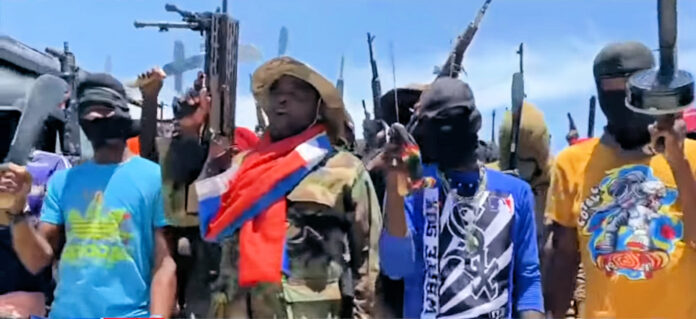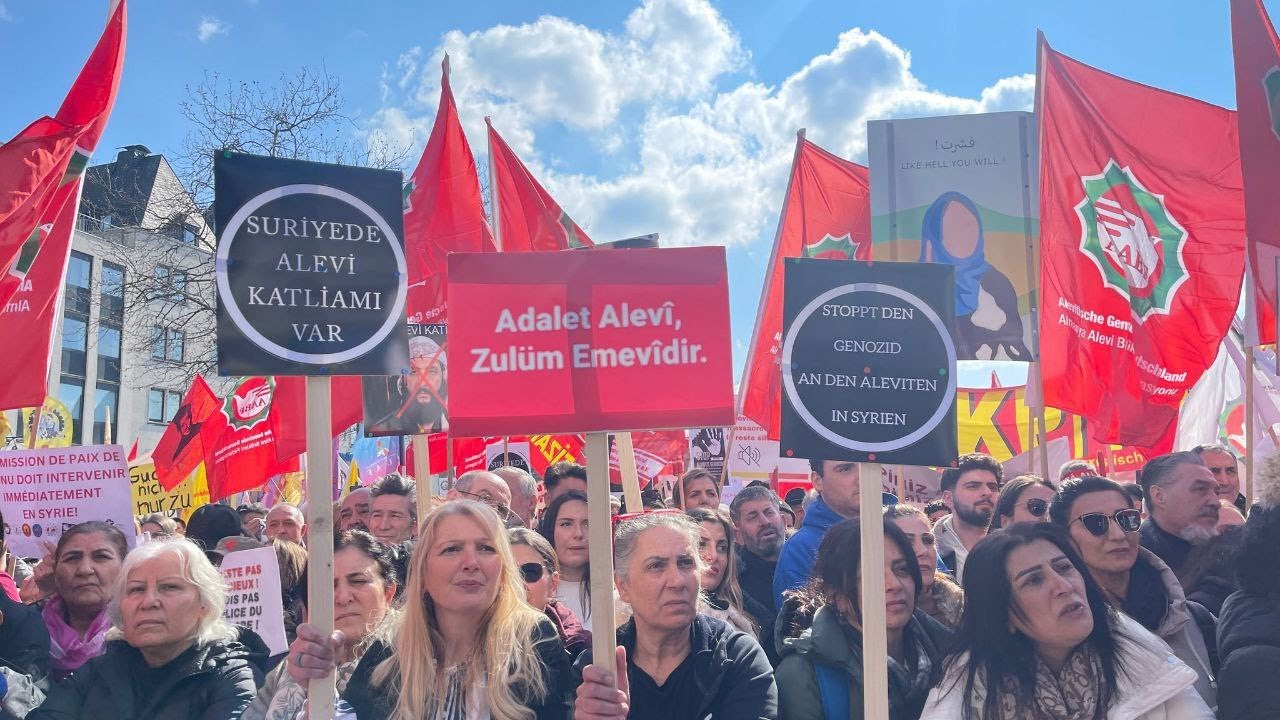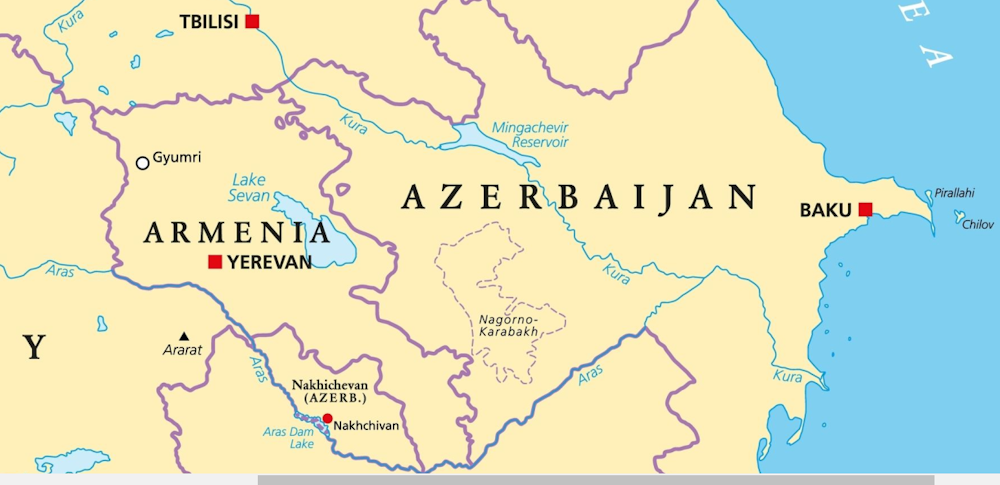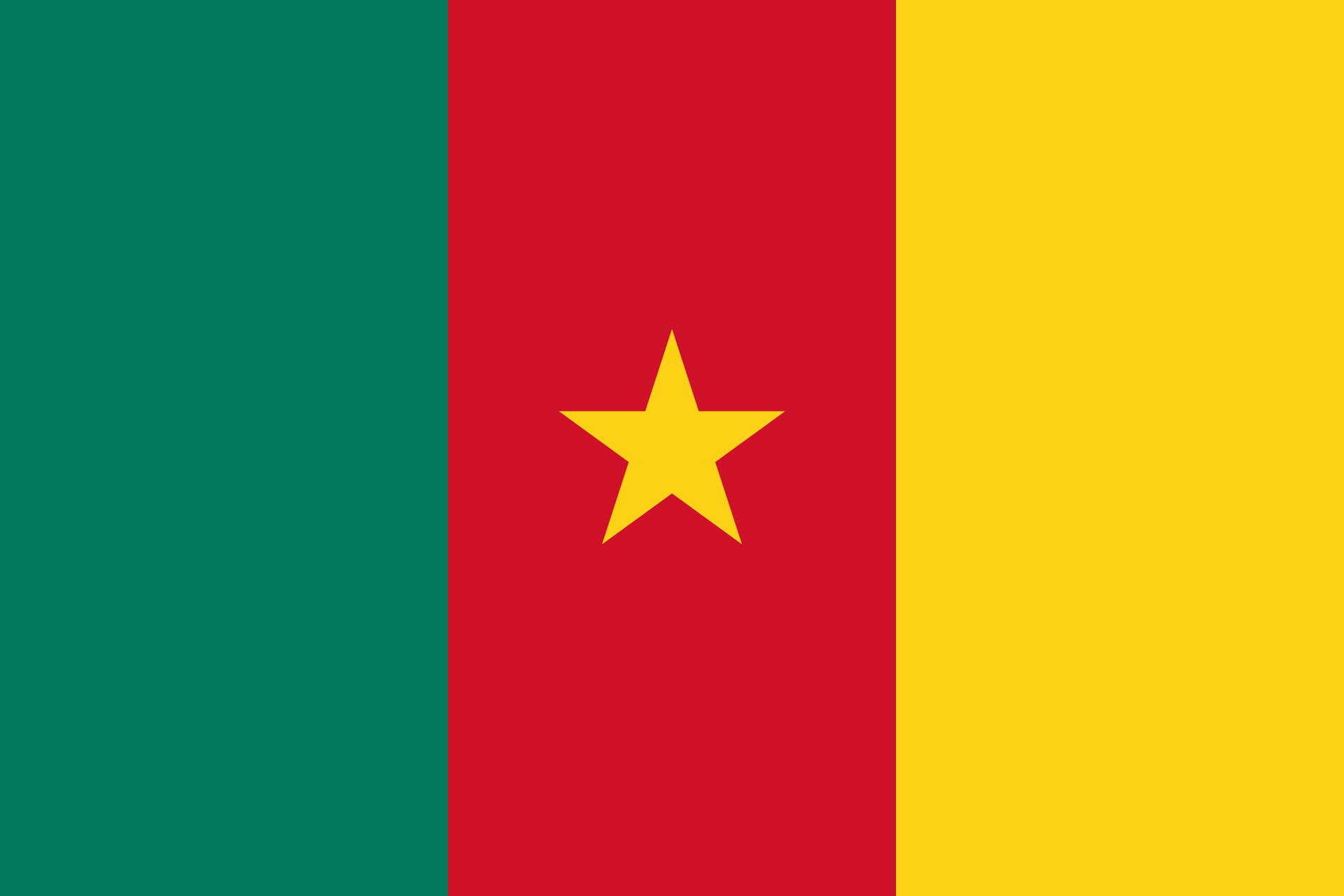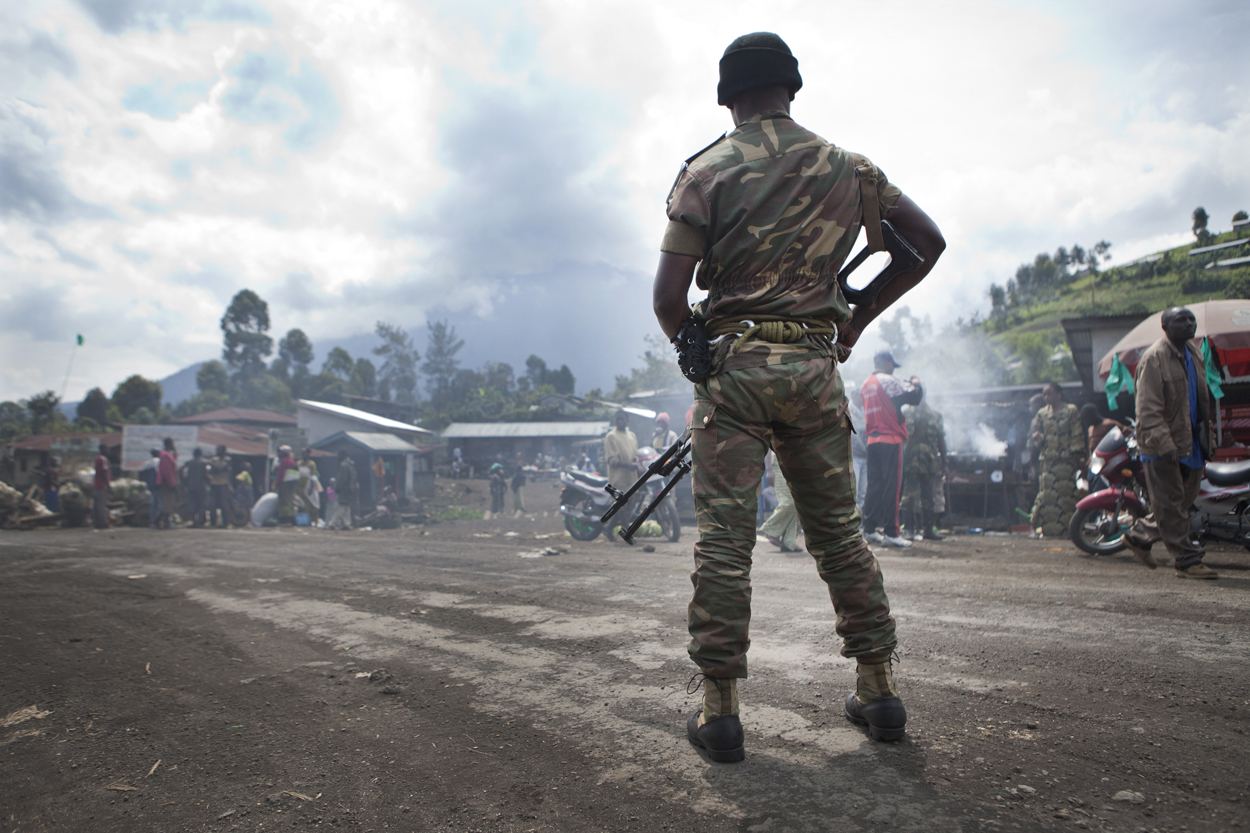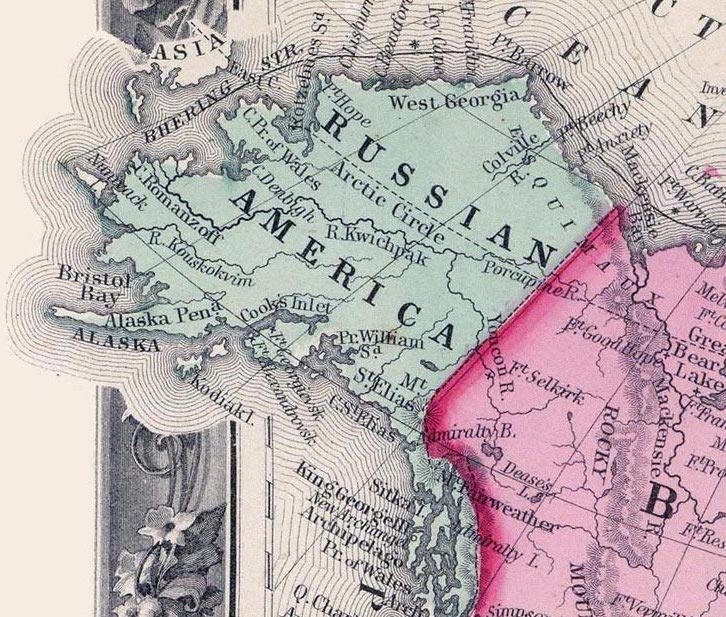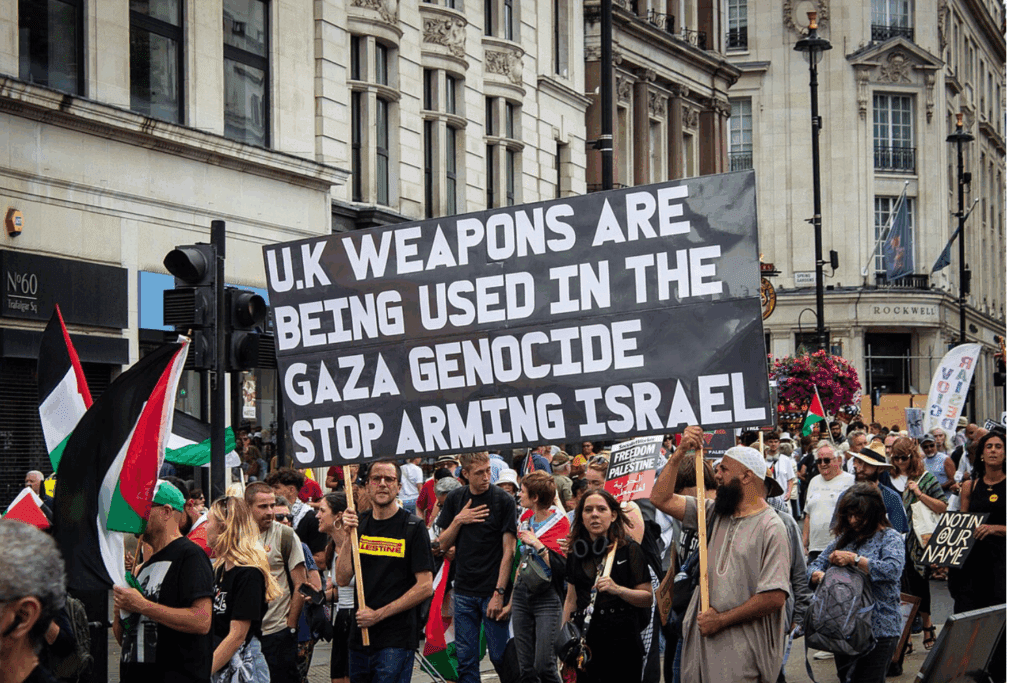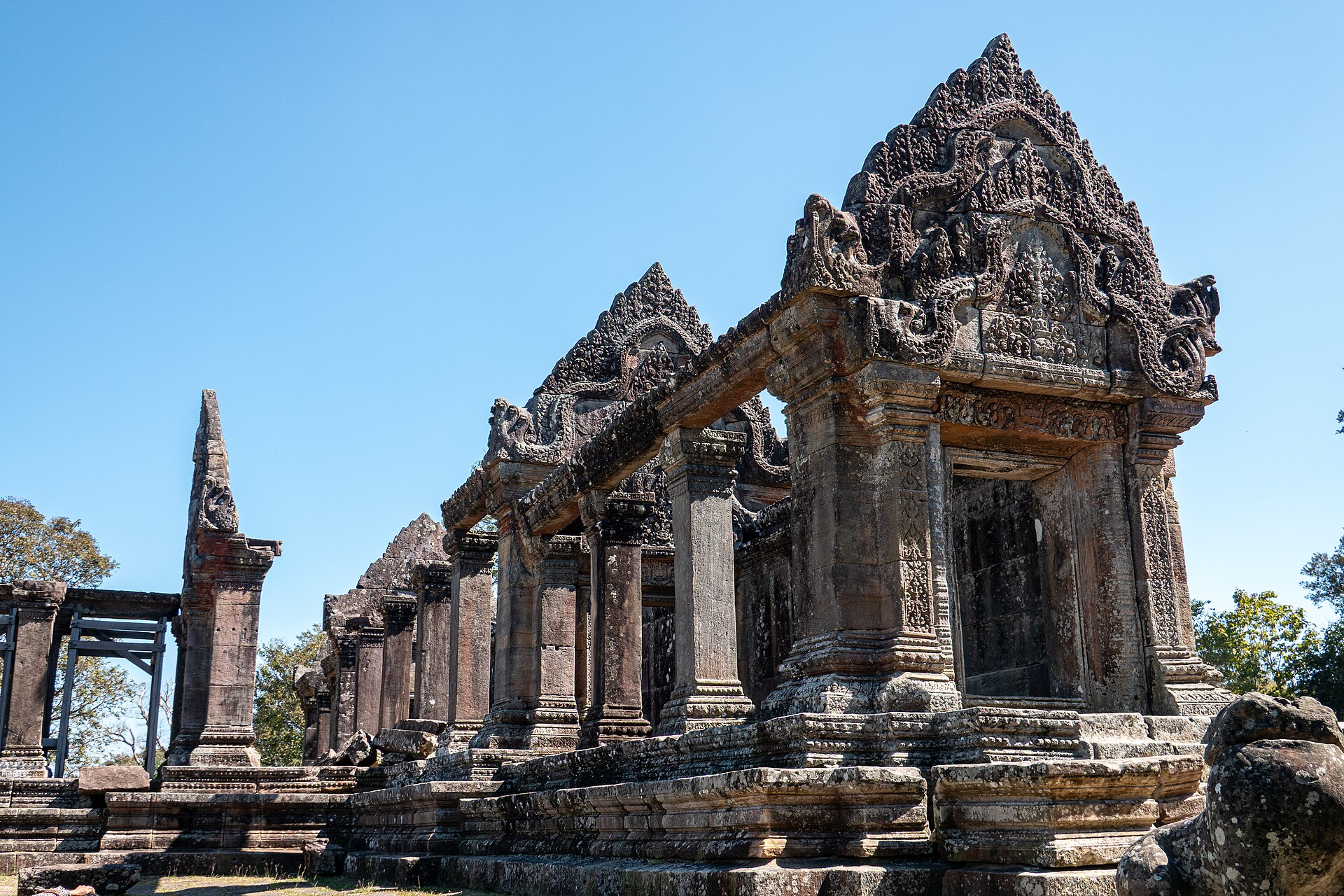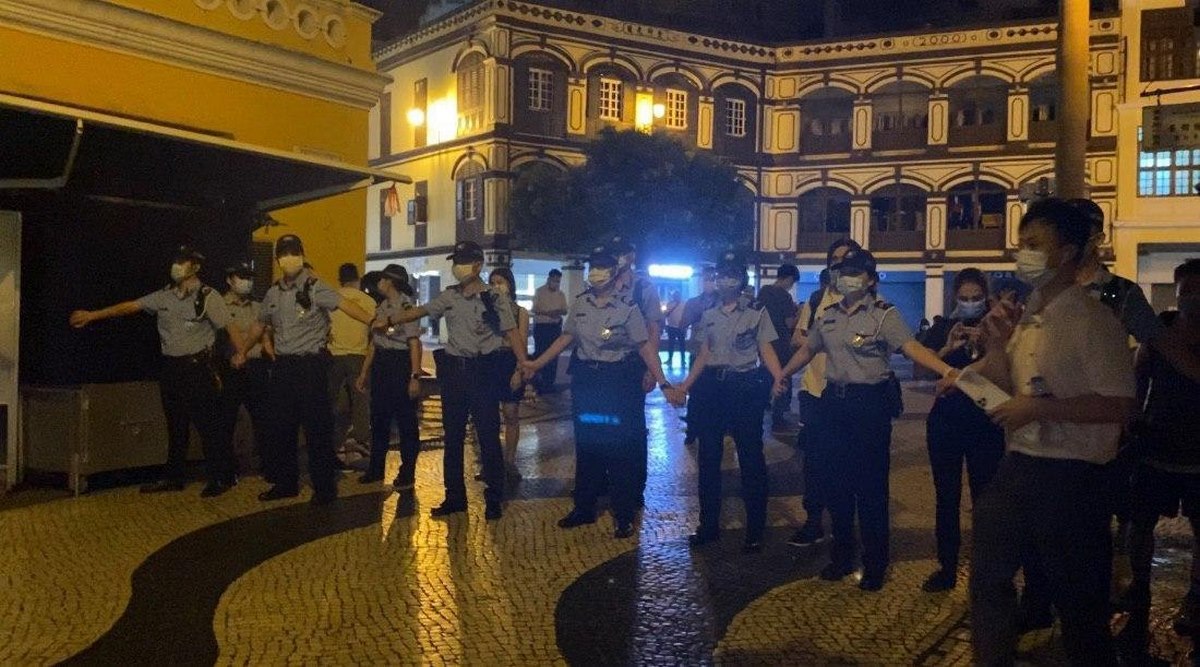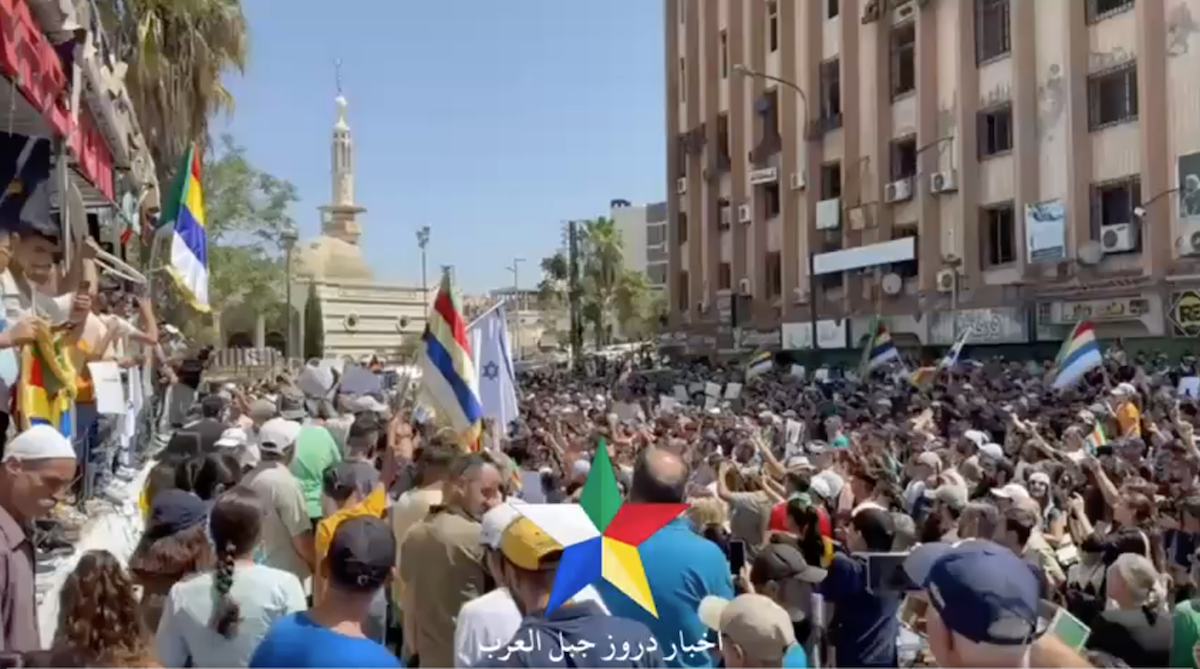
Druze protesters mobilize for independence from Syria
Hundreds demonstrated in the southern Syrian city of Suwayda, pressing for the “self-determination” of the Druze people. Protesters demanded full independence from Syria, dismissing ideas of federalism or autonomy as inadequate. Speakers asserted that statehood is needed to guarantee their security, citing last month’s episode of violence in Suwayda as evidence that inter-ethnic coexistence under one state is no longer a viable solution. Complicating the situation is that Israel is posing itself as the protector of the Syrian Druze. Amid the July fighting, Israel launched air-strikes on Syria, saying that the Druze were threatened by government-affiliated forces. (Photo: Druze Free Spirits via Twitter)



